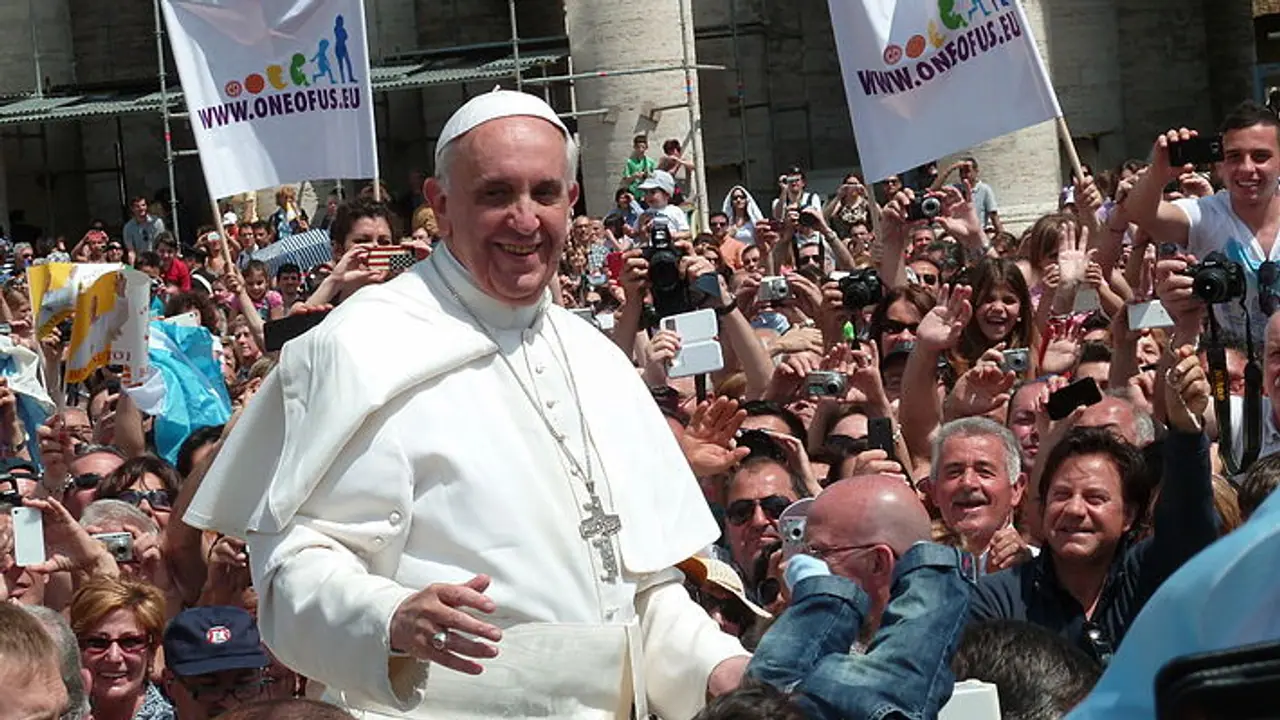Following the death of Pope Francis, the Vatican begins a nine-day mourning. Among about 135 eligible conclave voters are four Indian cardinals who will help choose the next pope in a historically significant papal transition.
Pope Francis, the 266th leader of the Catholic Church, passed away on Easter Monday, April 21, 2025, at the age of 88. The Pope died peacefully at 7:35 AM in his residence at Casa Santa Marta, according to a statement by Cardinal Kevin Farrell, the Camerlengo of the Apostolic Chamber.

His passing has ushered in a period of mourning for the Church, marking the beginning of a nine-day mourning ritual known as the Novendiale, a longstanding Roman Catholic tradition.
Cardinal Farrell, in his announcement, expressed deep sorrow and said, “With immense gratitude for his example as a true disciple of the Lord Jesus, we commend the soul of Pope Francis to the infinite merciful love of the One and Triune God.” Pope Francis, born Jorge Mario Bergoglio in Buenos Aires, Argentina, became the first pope from the Americas and the Southern Hemisphere when he was elected in March 2013, following the historic resignation of Pope Benedict XVI. His papacy was marked by his advocacy for the poor, his commitment to interfaith dialogue, and his call for global peace and environmental protection.
As the Vatican mourns the loss of Pope Francis, preparations for electing his successor are underway. After the Novendiale period, the College of Cardinals will enter the Sistine Chapel for the conclave, where about 135 eligible cardinals, all under the age of 80, will cast their votes to elect the next Pope.
The process will be guided by centuries-old traditions, with each cardinal casting a secret ballot, requiring a two-thirds majority to elect the new head of the Catholic Church. Smoke signals from the Sistine Chapel chimney—black for no decision and white for the election of a new Pope—will mark the outcome of each round of voting.
Among the 135 electors are four Indian cardinals who will play a key role in choosing the next Pope. These cardinals come from diverse backgrounds, reflecting the broad influence of the Catholic Church in India:
Cardinal George Jacob Koovakad (51): A Syro-Malabar archbishop from Kerala, Cardinal Koovakad is currently the Prefect of the Dicastery for Interreligious Dialogue, a role he assumed in January 2025. He is known for his diplomatic skills, having previously organized Pope Francis's foreign trips. Ordained as a priest in 2004, he was elevated to the College of Cardinals in December 2024.
Cardinal Filipe Neri Ferrao (72) The Metropolitan Archbishop of Goa and Daman, Cardinal Ferrao has long been an advocate for social justice, focusing on issues like migration, climate change, and family ministry. He was appointed as a cardinal in 2022, and his work has emphasized interreligious dialogue and the promotion of peace. His leadership in Goa, one of the oldest Christian communities in India, has been pivotal in maintaining strong ties between the Church and society.
Cardinal Anthony Poola (63): Cardinal Poola, the Metropolitan Archbishop of Hyderabad, made history as India’s first Dalit cardinal. A strong advocate for social justice, particularly in addressing caste-based inequalities, he has committed his efforts to helping marginalized communities, especially underprivileged children. His elevation to the College of Cardinals is seen as a significant step toward greater inclusivity in the Church.
Cardinal Baselios Cleemis Thottunkal (64): The Major Archbishop of Trivandrum of the Syro-Malankara Catholic Church, Cardinal Cleemis has served as a key leader in the Syro-Malankara community, which follows the Eastern Rite. He was appointed as a cardinal in 2012 and has worked extensively in fostering ecumenical dialogue between the Catholic Church and other Christian denominations, as well as promoting the Church’s social teachings in India.
The conclave’s proceedings will be tightly controlled to ensure secrecy. After taking an oath of secrecy, the cardinals will conduct multiple rounds of voting each day until one candidate secures the required two-thirds majority.
If no candidate receives enough votes, the ballots will be burned, with black smoke rising from the chimney. Once a new Pope is elected, white smoke will signal the result, and the famous announcement “Habemus Papam” will be made to the public.
While Pope Francis’s death has deeply saddened millions around the world, it has also ushered in a period of reflection and preparation for the next phase of the Catholic Church.
As the Church looks to its future, the four Indian cardinals will be instrumental in choosing the new Vicar of Christ, and their roles underscore the growing global influence of the Church’s leadership in India.
The passing of Pope Francis has been met with tributes from global leaders. French President Emmanuel Macron expressed his grief, praising the Pope for his unwavering dedication to the poor and marginalized, while European Parliament President Roberta Metsola called him “The People’s Pope,” remembering his compassion for peace, equality, and social justice.
As the world mourns, all eyes will be on the upcoming conclave, as the Catholic Church prepares to elect a new leader to guide it in the years to come.


